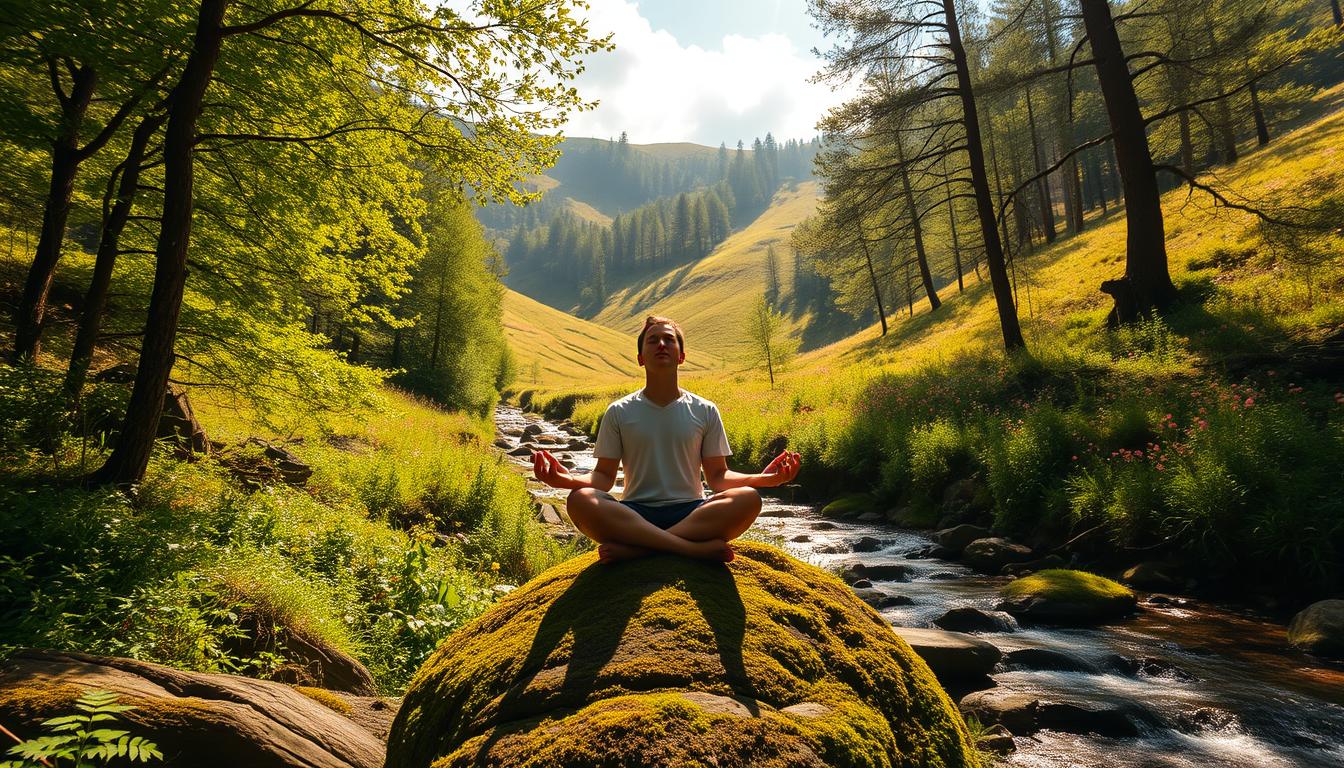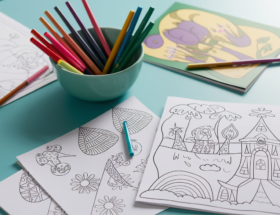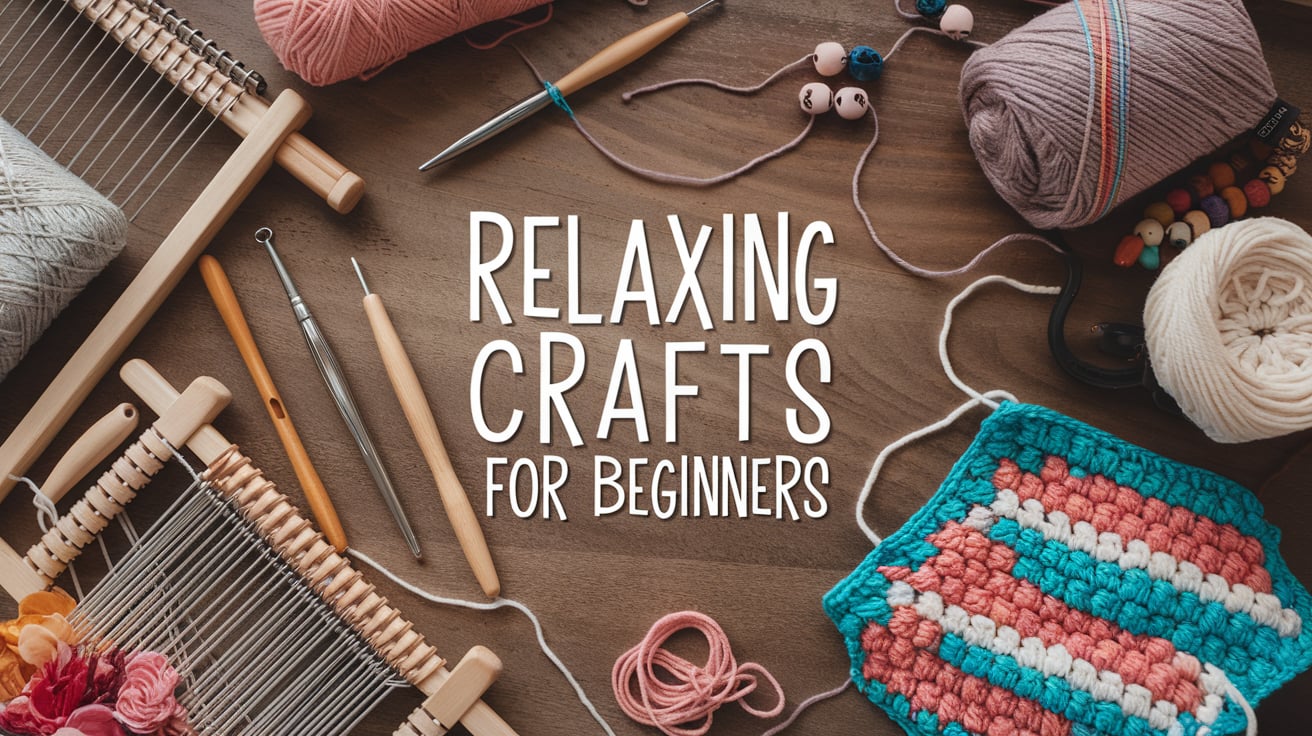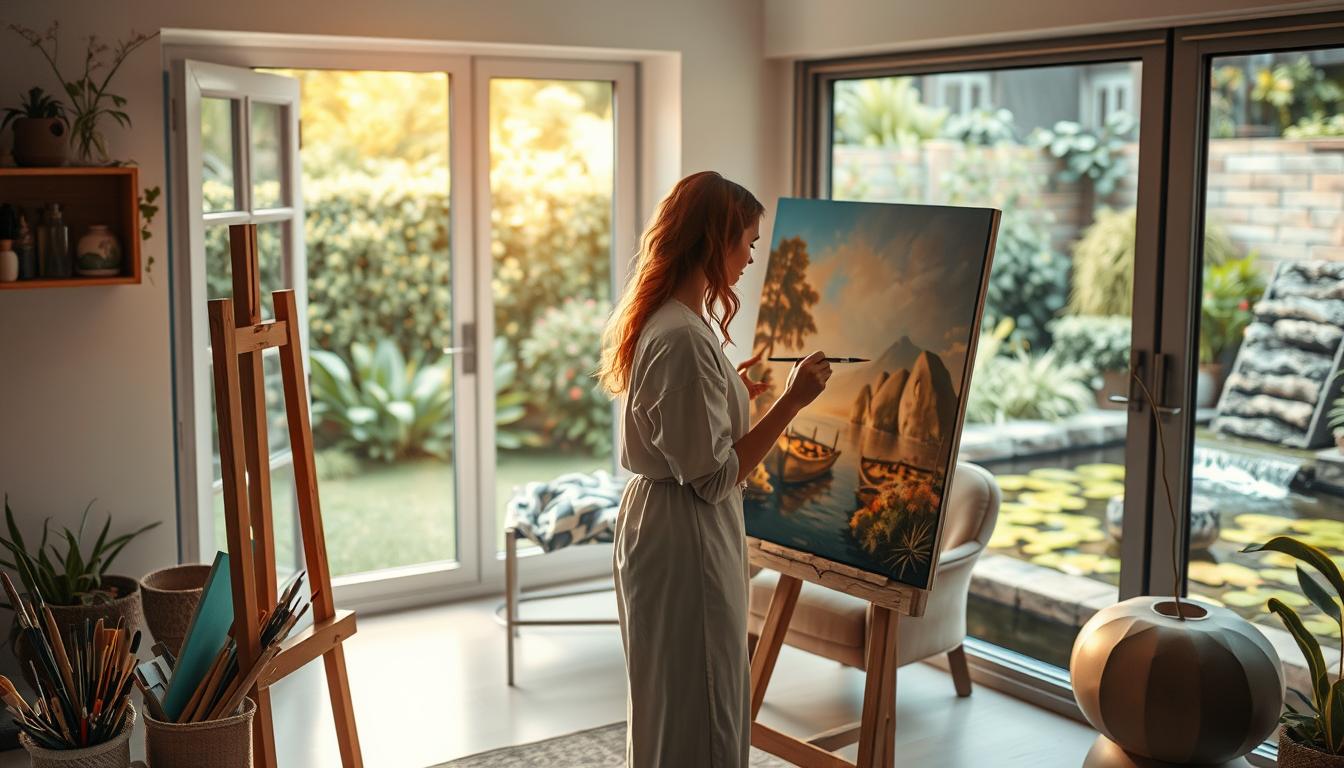Have you ever thought about having a calm mind without meds? In the U.S., 19% of adults deal with anxiety each year. Looking for natural anxiety relief is key for many. Tools like deep breathing and good nutrition can help fight anxiety.
Research shows lifestyle changes can help with anxiety. A natural stress relief method might not seem as strong as meds. But, think about how exercise or eating right could calm your mind. Simple changes can lead to a peaceful mind, backed by science.
Prefer to listen? Check out the podcast version below.
Key Takeaways
- Understanding natural remedies can empower you to manage anxiety symptoms effectively.
- Evidence suggests that lifestyle changes, such as exercise and meditation, may rival traditional medications in treating anxiety.
- Recent studies underscore the benefits of journaling and time management in improving mental health.
- Diet and nutrition play a critical role in anxiety levels, with hydration having a substantial impact on well-being.
- The support of social connections can offer significant psychological benefits and reduce stress.
- Engaging in physical activities and creative projects promotes relaxation and can be part of a holistic approach to anxiety relief.
- Herbal supplements like chamomile and lavender oil have been studied for their calming effects on anxiety symptoms.
Embrace Physical Exercise for Anxiety Relief

Finding ways to reduce anxiety is key in today’s world. Exercise for anxiety relief is a great way to do this. It makes you feel better physically and mentally.
The Connection Between Exercise and Mental Health
Why does moving your body help your mind? Activities like those suggested by the Department of Health and Human Services can help. They can make you feel less anxious by up to 30%, says the Mayo Clinic.
Exercise releases happy chemicals in your brain. It also helps you sleep better. Being outside, like hiking, can make you feel less anxious by 71%.
High-Intensity Vs. Low-Intensity Workouts
Should you choose high-intensity exercise benefits or low-intensity workouts for stress? It depends on what you like and your health. High-intensity workouts are great for busy people and can be very effective.
But, low-intensity activities like yoga or walking are easier to start. They can also help you feel less anxious and happier. They don’t need much setup.
Exercise can give you a quick mood boost or help you relax. It’s all about finding what works for you.
Here’s a simple way to add exercise to your life:
- Specific: Pick what kind of workout you like.
- Measurable: Keep track of how long you exercise (at least 150 minutes a week).
- Attainable: Start small, like three 10-minute walks a day.
- Relevant: Choose activities you enjoy.
- Time-limited: Set goals for the week or month.
Starting exercise for anxiety relief can change your life. It’s not just about feeling less anxious. It’s about living better. Start your fitness journey and see how it improves your mental health.
Discover the Calmness Through Meditation

Meditation helps ease stress and manage anxiety. It fits easily into your daily life. Learning mindfulness and meditation can change your life.
Mindfulness Meditation: A Beginner’s Guide
Mindfulness meditation makes you aware of your senses and feelings now. It uses breathing and guided images to relax. It’s a simple way to reduce stress.
Studies show Mindfulness-Based Stress Reduction (MBSR) helps a lot. It’s an 8-week program that lowers anxiety. Research in the American Journal of Psychiatry backs this up.
Incorporating Meditation into Your Daily Routine
Adding 10 minutes of meditation a day can help a lot. A study found it improves focus and performance. It helps people focus on now, not worries.
Mindfulness-Based Cognitive Therapy (MBCT) is also helpful. It combines mindfulness with cognitive therapy. It lowers depression and anxiety relapse rates by 50%.
Mindfulness and meditation are great for anxiety. They improve your well-being. Daily practice can lead to a more peaceful life.
Master the Art of Deep Breathing

Deep breathing exercises are more than just a way to relax; they are essential anxiety self-help techniques. By mastering various forms of deep breathing exercises, you can get quick relief from anxiety attacks. This can also make you feel better overall.
When you feel overwhelmed, deep breathing is a powerful way to calm down. It helps your body relax and can slow down your heart rate. Each breath helps you take back control of your thoughts and feelings.
| Breathing Technique | Description | Benefits |
|---|---|---|
| Diaphragmatic Breathing | Focus on engaging the diaphragm during inhalation to ensure the lungs expand fully. | Improves oxygen circulation and enhances relaxation. |
| 4-7-8 Breathing | Inhale for 4 seconds, hold for 7 seconds, and exhale for 8 seconds. | Helps reduce anxiety, improves sleep quality, and controls emotional responses. |
| Equal Breathing | Balance the duration of inhales and exhales, usually around 3-5 seconds each. | Increases focus, reduces stress, and promotes a calm mental state. |
| Resonant Breathing | Maintain a rate of 5 breaths per minute to maximize heart rate variability. | Decreases symptoms of depression and elevates mood. |
| Nadi Shodhana | Alternate breathing through each nostril to clear the mind and balance body energies. | Promotes mental clarity, relieves stress, and optimizes lung function. |
Each breathing technique offers a unique benefit, making them useful tools in your anxiety self-help arsenal. Choosing the right method can vary based on your immediate needs. For example, resonant breathing can calm you down quickly, while diaphragmatic breathing can help you prepare for stress.
Adding these breathing techniques to your daily routine can help manage your mental health. Just a few minutes of deep breathing exercises each day can help your body handle stress better. Start simple and gradually add more to your practice. The key is to be consistent and mindful.
10 Simple Ways to Reduce Anxiety Naturally

Looking for ways to feel less anxious? It’s important to try different coping techniques. Journaling and managing your time well are two big helps.
Journaling Your Thoughts and Feelings
Journaling is a great way to deal with anxiety. It lets you write down your feelings without fear of judgment. Doing it often helps you understand yourself better and find peace.
It’s not just about writing. It also helps you see what makes you anxious. This is key in managing your feelings.
Managing Time to Manage Stress
Good time management is more than just doing tasks. It’s about living a balanced life. This means having time to work and time to relax.
By breaking tasks into smaller parts, you can feel less stressed. This makes your day better and more productive.
Using journaling and time management can make your life better. Learning other ways to cope can help too. The goal is to find a balance that makes you happy and productive.
Heal with Aromatherapy

More people are turning to natural ways to feel better. Aromatherapy is one of these methods. It uses plant-based oils to calm the mind and body.
Stress-relieving essential oils fill the air with nice smells. Lavender oil is famous for helping people relax. Just smelling lavender can make you feel calm.
Lavender isn’t the only oil that helps. Jasmine and rose oils also work well. They make you feel calm and help with stress.
Here’s how some leading oils stack up in clinical settings:
| Essential Oil | Weighted Mean Difference for SAIS | Effect on Systolic Blood Pressure |
|---|---|---|
| Jasmine (Jasminum sambac) | -13.61 | No significant change |
| Citrus (Citrus aurantium L.) | -9.62 | Lowers pressure moderately |
| Rose (Rosa rugosa Thunb.) | -6.78 | No significant change |
| Lavender (Lavandula angustifolia Mill.) | -5.41 | Lowers pressure slightly |
You can use these oils every day. Just add a few drops to a diffuser or mix with a carrier oil. This can help you feel less anxious and improve your health.
Starting with aromatherapy can make your life happier. Let these natural oils help you relax. Every breath can bring you closer to feeling better.
Nourish Your Body with Proper Nutrition

Knowing how food affects your mood can change how you handle anxiety. Starting anxiety relief through nutrition is more than just picking certain foods. It’s about eating in a way that helps your mind.
Every meal you eat can help calm your mind. This is key to feeling better.
Eat a Balanced Diet to Ease Anxiety
Eating foods with complex carbs, proteins, and fats is good for your mind. Whole grains, oatmeal, quinoa, and fatty fish like salmon are great. They help you feel better and support your mental health.
These foods are full of omega-3 fatty acids. They help lower stress and improve brain function. This is important for anxiety relief through nutrition.
Also, eating a little dark chocolate can lift your mood. Dark chocolate has serotonin that helps control mood and stress.
The Impact of Hydration on Mental Well-being
Hydration and anxiety are closely tied. Even a little dehydration can increase stress. Drinking enough water can help lower anxiety and improve mental health.
Water is key to feeling calm. It’s simple but very effective for mental balance.
To better manage anxiety, cut down on caffeine and alcohol. They can make anxiety worse. Instead, eat foods rich in vitamins and minerals. Leafy greens, nuts, and seeds are good for your brain and mood.
Keeping a balanced diet benefits your whole body. It’s key to lasting anxiety relief through nutrition. Making smart choices about what you eat and drink can improve your life and mental health.
Lean on the Support of Social Connections

Fostering your social support for anxiety is more than just adding names to your list. It’s about building a network that makes you feel good and strong. Life can be tough, but having friends and family helps a lot. They offer support and make you feel better.
Studies show that maintaining relationships for stress relief can change how you see challenges. It makes you feel less stressed and can even make you live longer. People with strong social ties live up to 20% longer. On the other hand, not having friends can shorten your life by up to 50%.
Want to grow your social circle? Try meeting up regularly, helping out in your community, or just talking about your day. Each time you meet someone, you’re taking a step towards a happier, healthier life.
- People with thriving social circles report less stress and lower anxiety levels.
- Volunteering or participating in group activities can boost your mental health and general happiness.
- Socially active individuals are 1.5 times more likely to experience higher satisfaction in life.
Every time you talk to someone, it’s important. Whether it’s a deep talk with a friend or a quick hello to a neighbor, it helps. So, when you’re feeling down, don’t be afraid to reach out. Your network is there to support you, made up of many threads of care and connection.
Engage in Creative Outlets for Stress Relief

When life gets too much, creative activities for anxiety can be a great escape. Things like music, art, or gardening are fun and good for your mind. They help you feel better and more at peace.
Research shows that being creative can really cut down stress. Music and art therapy and gardening for relaxation can make you feel up to 50% less anxious. This makes life better and more enjoyable.
Finding Solace in Music and Art
Music and art are more than hobbies. They are powerful ways to express yourself and feel better. 85% of people in music therapy feel happier and more balanced. 75% say art helps them feel less depressed.
These therapies help you connect with yourself and heal. They work from the inside out.
The Therapeutic Effects of Gardening and DIY Projects
Gardening for relaxation is more than making your yard pretty. It’s a calm place that lowers stress by 30%. Planting, weeding, and caring for plants can be very soothing.
DIY projects also boost your self-esteem by 40%. They give you a sense of accomplishment and help you manage stress better.
In short, spending time on creative activities for anxiety can change how you handle stress. The arts, like painting or playing music, are ways to express feelings and face challenges. As you try these activities, you might find a new way to relax and feel better.
Introduction to Herbal Supplements for Anxiety

If you’re dealing with anxiety, you might want to try natural ways to feel better. Herbal supplements for anxiety are popular because they are gentle and natural. We’ll look at how chamomile and lavender oil can help you feel calm and less anxious.
Chamomile is known as nature’s sedative because it helps you relax and sleep. It has a compound called apigenin that works like some medicines to reduce anxiety. Lavender oil also helps you feel calm. Its scent can make you less nervous and improve your mood.
More and more people are using these natural remedies. Let’s look at some facts and stats to understand their benefits:
| Study Focus | Number of Participants | Noteworthy Findings |
|---|---|---|
| Generalized Anxiety and Depression | 2,619 | 71% of RCTs showed positive effects on anxiety |
| Kava and Anxiety Reduction | 391 | Significant anxiety reduction in 75% of participants with GAD |
| Chamomile Efficacy | 1,500 mg daily dosage | Significant improvements in anxiety scores after 8 weeks |
| Lavender Effect on Insomnia and Anxiety | 67 adults | Notable improvement in sleep and anxiety within 4 weeks |
Before trying herbal supplements for anxiety, talk to a healthcare professional. They know about herbal medicine and can help you choose the right one. This ensures you stay safe and get the best results.
In your quest to manage anxiety, remember that lavender oil for calmness and chamomile benefits can be helpful. They are part of a natural approach to wellness.
Conclusion
Managing anxiety naturally is not the same for everyone. It’s about finding what works for you. Meditation, chamomile, and exercise are just a few examples.
These methods can help you feel better. A 2021 study found exercise can lower anxiety risk by 60%. The 3 3 3 rule and social activities also help.
Eating well and breathing deeply are important too. They help keep your mood stable. Weighted blankets can help you sleep better, which is key for managing anxiety.
While these methods are helpful, they might not be enough for everyone. If you have severe anxiety, you might need medicine too. Always talk to a doctor before trying new things.
Let these natural ways help you find peace. They can make your life calmer and more balanced. Remember, it’s all about finding what works for you.
FAQ
How does physical exercise impact anxiety?
Exercise is key for your mind and can lower anxiety. Both hard and easy workouts help. But hard workouts might work best. They make you feel good by releasing happy hormones.
Can meditation really help with anxiety?
Yes, meditation is great for stress and anxiety. It calms your mind and focuses you. Studies show it’s as good as some medicines for anxiety.
What are some deep breathing techniques for anxiety relief?
Try deep breathing like belly breathing and the 4-7-8 method. Breathe in for 4 seconds, hold for 7, and out for 8. These help your breathing and ease anxiety.
How can journaling help manage anxiety?
Journaling lets you share your feelings and thoughts. It can make you feel better and help you tackle problems. It’s a way to release stress.
Why is time management linked to anxiety reduction?
Good time management lowers stress by organizing your day. Breaking big tasks into small ones helps avoid feeling overwhelmed. This reduces anxiety.
What role does aromatherapy play in natural anxiety relief?
Aromatherapy uses oils to calm and reduce stress. Lavender oil, for example, can help with anxiety. It’s a calming way to take care of yourself.
How does nutrition affect anxiety levels?
What you eat affects your mood and anxiety. Eating well, like fruits and proteins, helps your mind. Drinking enough water also supports your mental health.
Can social connections really make a difference in managing anxiety?
Yes, friends and family help a lot. They distract you from stress and support you. Being social is good for your mind and heart.
In what ways do creative activities assist in anxiety management?
Creative things like music and art take your mind off worries. They make you feel good and calm. They’re a great way to relax.
Are herbal supplements effective for treating anxiety?
Some herbs like chamomile might help with anxiety. But, the science is not all the same. Always talk to a doctor before trying them.
Is it safe to use natural remedies for anxiety along with conventional treatments?
Always check with a doctor before mixing natural and medicine treatments. This way, you avoid bad reactions and find the best mix for you.









